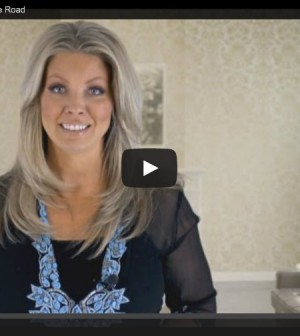- Finding Unshakable Power in a World That Wants to Pull Us ApartPosted 2 weeks ago
- What could a Donald Trump presidency mean for abortion rights?Posted 2 weeks ago
- Financial Empowerment: The Game-Changer for Women in Relationships and BeyondPosted 2 months ago
- Mental Health and Wellbeing Tips During and After PregnancyPosted 2 months ago
- Fall Renewal: Step outside your Comfort Zone & Experience Vibrant ChangePosted 2 months ago
- Women Entrepreneurs Need Support SystemsPosted 2 months ago
Anger: The Proverbial Fork in the Road!

BLOG – November 24th – Written by Crystal Andrus Morissette
Most of us have little idea of what to do with our anger and frustrations—especially, us women. We were never taught what to do with our anger, the way men were. We were told to bury our unhappiness; that a good woman is lovely, happy, friendly, and peaceful. She turns the other check. Anger itself is not the problem. All great change has occurred because someone got angry enough to do something about it. The problem comes when we aren’t able to communicate and advocate for our needs and instead, we become disempowered by our anger. Often, letting it either implode on us or explode on others. We literally weren’t taught the dialogue of expressing our anger and frustrations in a healthy way. All too often we feel like a beautiful bottle of champagne that every so often gets agitated enough that it explodes. Embarrassed of our outbreak, we jam the cork back down and stuff our sh*t down with it. Instead, we must learn the art of effective communication or our needs will never be met! There are two ways we all express our anger: Aggressively versus Assertively. One is unhealthy while the other is very healthy.
This is the proverbial fork in the road: One way will lead you to peaceful power, while the other will take you to raging force.
In every situation there is an authentic (appropriate) and inauthentic (inappropriate) way to express ourselves. Aggressive Communication is the inappropriate way. It leads to fury, rage, and the annihilation of relationships. Nothing good can come here. People shut up and shut down because aggressive people have no boundaries; they want what they want, how they want it, and when they want it. You will either be silent or agree with them. And if you disagree, get ready for the wrath of the aggressor. Aggressive Communication shows up in any number of negative behaviours from being self-righteous and judgmental to being difficult, demanding, condemning, indifferent, critical, unsympathetic, insensitive, cold, careless, or simply by having reckless disregard for another person’s heart or wellbeing. Aggressive people have a wall around them, almost like a barbwire fence. This wall is their protection. And getting through to them can be seriously painful work! The words they spew and the damage they do with those barbed wires can be irreparable. Under the surface (or behind the fence) is fear. The barbwire is fused together with pride and self-righteousness, keeping the fear in and the truth or love out (although they rarely see it that way). Being right matters most; attacking, defending, and protecting their fears, beliefs, and ideals about “how this should be” and “how you should be” matters more than anything else.
“You are wrong and I am right! And I will teach you the right way!”
An empowered person, on the other hand, knows that anger is a natural and often legitimate emotion but that held-onto or misdirected anger destroys our health, wealth, love, vitality, and relationships! Empowered people have mastered the art of Assertive Communication! Assertive Communication is the appropriate or authentic way. It empowers us to formulate our anger in a productive way where we have the courage to look at ourselves, face our fears, heal our wounds, and see the bigger picture. It is here where we can articulate our needs or opinions with confidence, clarity, and reason—most importantly, so that others can hear what we’re actually saying!
Assertive Communication takes self-awareness and insight. You must be able to both speak and listen with an open mind!
Assertive Communication is based on fairness, reason, and healthy boundaries—it’s where authentic power begins to blossom. It is the root of empowerment. Assertiveness acknowledges our self-worth and dignity as well as that of the other person—no matter who they are and no matter what they’ve done. Here is what I recommend you do the next time you begin to feel angry and aggressive:
1. Pause, step away, and take five deep breaths. Remind yourself that only disempowered, wounded people get triggered into an aggressive place. The more we heal our painful or sad memories, the less aggressive we are and the more assertive we can be. This is an opportunity for growth, understanding, and healing.
2. Ask yourself: “What are they are doing that is triggering me so much?” Get very clear on the behaviour. “When did I learn or decide that behaving ‘this way’ is unacceptable or undesirable?” Think of it this way: Each of us has grown up believing certain personality traits are unacceptable, unlovable, undesirable, and unwanted. And by the time we are adults, we have created a belief system—with “rights and wrongs” about how all people should behave— based on our parents and our experiences growing up.
3. Okay . . . brace yourself. This next step is a big one: When do you first remember being shamed, embarrassed, or punished for acting this same way yourself? How old were you? What was happening? Most likely, we (or someone close to us) were shamed for behaving this same way at some point in our lives. When we stumble upon someone who behaves with these unacceptable, unlovable, undesirable, and unwanted qualities, we feel triggered: angered! “How dare you act like I did (or do)?” Instead of realizing they have triggered a wound in us, we reject the person. Psychologists call this projection—a brilliant defence mechanism of the brain.
4. Can you rise above this situation to see the bigger picture—to see both perspectives—and find more neutral ground? This means less pride and more objectivity. Can you see that this person has triggered a long-held-onto belief about how you and others should or should not act in the world? You have to be willing to let go of the limiting ways you learned while growing up.
5. Will you listen and speak with an open mind, in a respectful way? Stay calm. Speak your truth. Be fair. And, if the other person won’t communicate back with you in a reasonable manner, this is where you have to set a boundary! No one has the right to force or demand his or her way on you! Walk away.
Remember: Peace isn’t about everyone agreeing. It’s when we allow for our differences and respect our individuality. We live and let live! Assertiveness is not just about being able to stand up for yourself but also about communicating with respectful words. Empowered people—both men and women—have learned to manage their emotions without repressing them. They’ve done the work of healing their wounded self. Their intentions are to speak their truth with dignity and respect. They have a healthy sense of their rights but they aim for cooperation and collaboration. It’s a win-win approach! And the best part: They are heard! They are seen! They can actually make a difference!
I’d love to know your thoughts on today’s Crystal’s Corner! For video go here: http://www.swatinstitute.com/anger-the-proverbial-fork-in-the-road/
Warmly,
Crystal
 Crystal Andrus Morissette is a leader in the field of self-discovery and personal transformation. From a very tough beginning—one that could easily have spun her into darkness, Crystal has risen to become an international coaching sensation and the Founder of The S.W.A.T. Institute (Simply Woman Accredited Trainer)- the world’s #1 on-line Personal Empowerment Coaching Certification School for women. She’s three-time best-selling Hay House author, the host of “The Crystal Andrus Show” and “Empowerment Class” on CBS Radio, a widely-sought after motivational speaker and a world-renowned women’s advocate. www.crystalandrus.com
Crystal Andrus Morissette is a leader in the field of self-discovery and personal transformation. From a very tough beginning—one that could easily have spun her into darkness, Crystal has risen to become an international coaching sensation and the Founder of The S.W.A.T. Institute (Simply Woman Accredited Trainer)- the world’s #1 on-line Personal Empowerment Coaching Certification School for women. She’s three-time best-selling Hay House author, the host of “The Crystal Andrus Show” and “Empowerment Class” on CBS Radio, a widely-sought after motivational speaker and a world-renowned women’s advocate. www.crystalandrus.com






